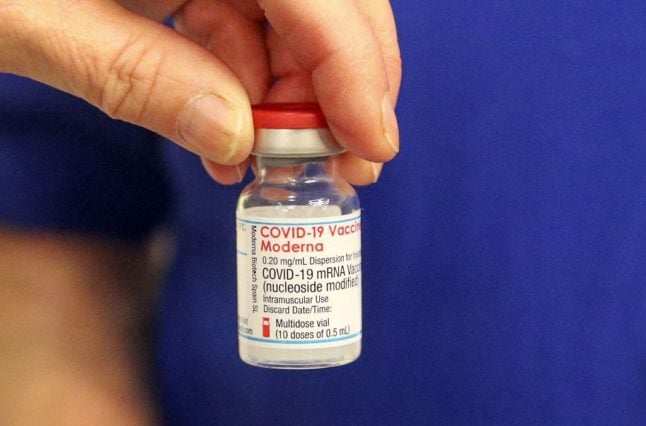Moderna this week told Swiss authorities that it would be unable to deliver the promised 200,000 vaccine doses by the start of May.
READ MORE: Swiss health experts recommend delaying second dose to speed up vaccination campaign
The news has thrown Switzerland’s cantonal rollout into disarray, with vaccination centres and doctors planning under the assumption that the doses would be received.
Authorities have now begun the process of cancelling vaccination appointments in several cantons.
According to Swiss news outlet NZZ, this has put into significant doubt Switzerland’s promise that all adults who wanted the vaccine would receive it by the end of June.
The impact could be particularly significant given that cantons have been encouraged to use up their existing vaccine supply in anticipation that more would be arriving soon.
Some cantons had already started vaccinating on Sundays, despite earlier indications that appointments would only be possible six days a week.
READ MORE: Switzerland tells cantons to use up their vaccine reserves
Lucerne health director Guido Graf told the NZZ the delivery failure has undercut the canton’s ability to plan.
“We cantons must have reliable planning data. Immediately. Ultimately, the population loses confidence not only in the canton, but also in the federal government. And that mustn’t happen.” He said.
The doses will now arrive in June.
Moderna will not face consequences for the delivery failure, NZZ reports, as vaccination companies are only obligated to deliver the promised vaccines within allocated quarterly periods.
This means that no penalty will be due, provided the vaccine arrives by the end of June.



 Please whitelist us to continue reading.
Please whitelist us to continue reading.
As soon as the registration was opened in Canton Zurich, on March 29, 2021, I registered and received a code and a cryptogram. Since I did not get any news about the date and place, I called the special vaccination number several times to get inane replies without factual information. On the other hand, some of my neighbors have told me that they have received appointments to be vaccinated across the lake where we live, though we have a vaccination center in our village. I no longer have a car and have certainly no intention to travel miles to be vaccinated outside my village where we have a vaccination center (????). Since December 2019, I haven’t seen my children and grandchildren living in the UK. I have a lot of patience but at 71 without being arrogant and despite knowing I am not alone in this particular situation, I no longer have patience with this kind of incompetence from the Canton of Zurich. Why not tell the truth: we have not enough vaccine doses.